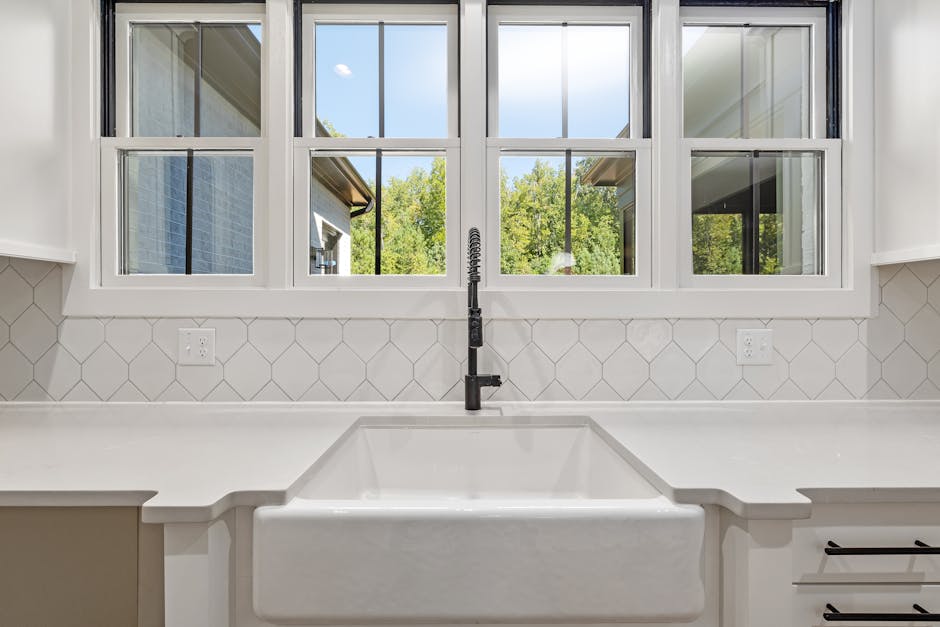.jpg)
Common Causes of Unusual AC Sounds in Sacramento Area Homes
While some gentle hums and whooshes are normal, a host of unusual sounds can indicate underlying issues that need attention. Ignoring these auditory cues can lead to more significant problems, higher energy bills, or even a complete system breakdown. Let's explore some of the most common culprits behind a noisy AC unit in the Sacramento area.
Signs You Shouldn't Ignore Unusual AC Sounds
It's easy to dismiss a new sound from your AC as just part of its normal operation, especially if it's still cooling your home. However, many unusual noises are early warning signs of bigger problems down the line. Paying attention to these signals can save you from costly repairs or a complete system breakdown during the peak of summer.
Loud, Persistent, or Increasing Noises
Any sound that is significantly louder than your AC's typical operational hum, especially if it's constant or gets progressively worse, demands immediate attention. A minor squeak can turn into a debilitating grind, indicating severe wear on a motor bearing. A faint hiss can signify a small refrigerant leak that will only grow larger, eventually leading to a complete loss of cooling. Don't wait for a small problem to become a major repair.
Combined with Poor Cooling Performance
If your AC unit starts making strange noises AND isn't cooling your home effectively, it's a clear red flag. This combination suggests a direct link between the sound and a functional problem. For instance, a hissing sound coupled with warm air from the vents strongly indicates a refrigerant leak. A rattling noise alongside weak airflow could mean a failing blower motor or significant ductwork issues. The cooling deficiency confirms the severity of the sound's origin.
Strange Odors Accompanying the Sound
While not a sound, unusual odors often accompany noises and are critical indicators. A burning smell with a buzzing sound could mean an electrical short or an overheated motor. A musty smell with a gurgling sound might point to mold growth in a clogged condensate drain. These smells, when paired with auditory cues, usually signal a serious problem that could be a fire hazard or a health concern.
Spike in Energy Bills
Your AC making unusual noises is often a symptom of it working harder than it should. This inefficiency directly translates to higher energy consumption and, consequently, higher utility bills. If you notice a sudden unexplained increase in your electricity bill and your AC is also sounding off, it's a strong indication that something is amiss internally, making the system less efficient and more costly to run.
Visible Leaks or Water Damage
If you see water pooling around your indoor unit, or notice staining on ceilings or walls, especially when accompanied by gurgling or dripping sounds, it's a sign of a clogged condensate drain line or another plumbing-related AC issue. Water damage can be extensive and costly to repair, so addressing the source of the leak and its accompanying noises is crucial. For any significant leaks or concerning AC noises, calling a professional like Always Affordable Plumbing is always the wisest choice.
How Sacramento Weather Makes AC Noises Worse
The unique climate patterns of the Sacramento Valley, particularly during its long, hot summers, exert significant stress on air conditioning systems. This environmental pressure can not only cause AC units to develop noises but also exacerbate existing minor issues, turning them into more serious, noisy problems.
High Heat and Constant Operation
Sacramento's extended periods of triple-digit temperatures mean AC units run almost continuously for months. This relentless demand forces all components—from the compressor and fan motors to the smallest electrical connections—to operate at maximum capacity for prolonged durations. This constant strain leads to faster wear and tear on bearings, belts, and other moving parts, increasing the likelihood of friction-induced squeals, grinds, and rattles. What might be a minor imperfection in a cooler climate quickly becomes a loud, glaring issue under Sacramento's intense heat.
Step-by-Step Troubleshooting Guide for Noisy AC
Before you call a professional, there are several simple checks you can perform to identify the source of unusual AC sounds. This troubleshooting guide can help you pinpoint the problem or, at the very least, provide valuable information to your technician.
1. Listen and Localize the Sound
The first step is to accurately describe the sound and its location. Is it a squeal, grind, hiss, rattle, or buzz? Does it come from the indoor unit (air handler/furnace), the outdoor unit (condenser), or the ductwork? Understanding the type and origin of the noise is crucial for diagnosis.
2. Check and Replace Your Air Filter
A dirty or clogged air filter is one of the most common causes of restricted airflow, which can lead to whistling or reduced air velocity sounds. Turn off your system, locate your air filter (usually near the indoor air handler or return air vent), and inspect it. If it's dirty, replace it with a clean one. For Sacramento homes, especially during dusty summers, filters should be checked monthly and replaced every 1-3 months.
3. Inspect the Outdoor Condenser Unit
- Clear Debris: Ensure the area around your outdoor unit is clear of leaves, grass clippings, dirt, and other debris. Obstructions can impede airflow and even get caught in the fan blades, causing rattling or grinding.
- Check Fan Blades: With the power to the unit OFF at the circuit breaker, carefully look for any bent or damaged fan blades, or foreign objects lodged between them. Never attempt to clear obstructions with the power on.
- Loose Panels: Gently check if any access panels on the outdoor unit are loose or vibrating, which can cause rattling noises. Secure them if necessary.
4. Examine the Indoor Air Handler/Furnace
- Blower Compartment: Turn off power at the thermostat and circuit breaker. Open the access panel to the blower compartment. Look for any visible obstructions or loose components.
- Drain Pan and Line: Locate the condensate drain pan and line. If you hear gurgling or see standing water, the line might be clogged. A light sucking action with a shop vac can sometimes clear minor clogs.
- Loose Panels: Similar to the outdoor unit, check for any loose panels or covers that could be vibrating and causing noise.
5. Check Your Thermostat Settings
Ensure your thermostat is set to the correct mode (Cool) and temperature. Sometimes, a unit cycling on and off rapidly due to incorrect settings can create unusual noises.
6. Inspect Ductwork
Listen for sounds coming directly from your vents or within your walls. Popping noises can occur as metal ductwork expands and contracts. Whistling might indicate a leaky duct. While you can't easily access all ductwork, sealing visible leaks with mastic tape can help.
7. When to Call a Professional
If you've performed these basic checks and the unusual AC sounds persist, or if you encounter any of the following, it's time to call a qualified HVAC technician from Always Affordable Plumbing:
- Grinding, screeching, or persistent loud banging noises.
- Hissing sounds indicating a refrigerant leak.
- Electrical buzzing or burning smells.
- Any situation where you are unsure or uncomfortable with what you find.
Attempting complex repairs yourself, especially those involving refrigerant or electrical components, can be dangerous and cause further damage to your system.
Sounds Indicating Major Component Failure
Certain sounds are almost always a clear sign that a major component is failing and requires professional intervention:
- Loud Grinding or Screeching: Often points to a failing motor bearing (blower motor or condenser fan motor) or the compressor itself. These parts are complex and expensive, and professional replacement is essential.
- Hissing Sounds: Almost exclusively indicates a refrigerant leak. Refrigerant is a controlled substance and requires certified technicians to handle, diagnose leaks, and recharge the system safely and legally.
- Loud Buzzing or Clicking (especially from outdoor unit): Can signal serious electrical issues, a failing capacitor, or a struggling compressor. Electrical problems are dangerous and should only be handled by trained professionals.
- Loud Banging: A definite sign of a significant mechanical failure, possibly a broken connecting rod in the compressor or a severely unbalanced fan. Turn off your AC immediately if you hear this.
Seasonal Risks for AC Noises in the Sacramento Region
Sacramento's distinct seasonal changes create specific challenges for air conditioning systems, often leading to particular types of noises at different times of the year. Understanding these seasonal risks can help homeowners anticipate potential issues and take preventative measures.
Spring: The Awakening of Dormant Problems
As Sacramento transitions from mild winters to warming springs, AC units that have been dormant for months are suddenly called back into action. This initial startup after a period of inactivity is often when hidden problems or minor issues from the previous season make themselves known. Risks include:
- Dry Bearings: Lubrication in fan motors can dry out over the winter, leading to squealing or grinding noises upon the first few starts.
- Stiff Belts: If your system uses a belt, it might have stiffened or cracked over the cold months, causing squealing until it warms up or is replaced.
- Debris Accumulation: Winter winds can deposit leaves, dirt, or even small branches into the outdoor unit, leading to rattling or clanking once the fan starts spinning.
- Refrigerant Leaks: Minor leaks that went unnoticed in the fall might have worsened over the winter, leading to hissing sounds and poor cooling performance on the first warm days.
This is why a pre-season tune-up in spring is highly recommended by Always Affordable Plumbing to catch these
Other Blogs
Customer Testimonials
See what our satisfied customers have to say about their experience with Always Affordable
Plumbing & HVAC.
Latest Blog Posts


Keeping Your Home's Pipes Pristine: Residential Drain Cleaning in Sacramento, CA






